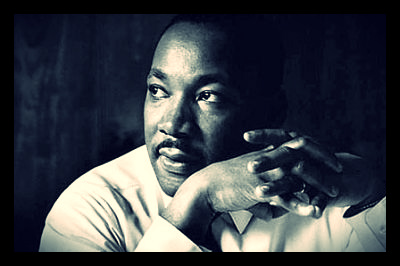Injustice Anywhere is a Threat to Justice Everywhere

This week, we celebrate the life and the legacy of Dr. Martin Luther King, Jr. As we honor Dr. King’s influence on American society, we should also celebrate his enduring impact on social and environmental justice. Dr. King once said that "injustice anywhere is a threat to justice everywhere" and now more than ever we must turn to righting one of the greatest environmental injustices of our time: climate change.
Burning fossil fuels is causing accelerated warming of Earth’s surface, which is a direct threat to both environmental and human health. In fact, the U.S. National Climate Assessment recently stated that climate change is harming the health of many Americans, and that people in communities of color are particularly vulnerable to these effects. This disproportionate impact of climate change on the health of vulnerable people and communities is largely due to harmful pollution that plagues the environments in which they reside.
Recent findings published in the International Journal of Environmental Research and Public Health confirm that what once seemed like far-off, distant threat is now beginning to manifest itself in communities of color – speaking to the need to act now on environmental injustices. In Spring 2014, a team of researchers from the George Mason University Center for Climate Change Communication (Mason 4C) surveyed members of the National Medical Association, a society of African American physicians who care for a disproportionate number of African American patients, to determine whether they were seeing the health effects of climate change in their practices.
The results of this study were profound: Over 86% of respondents indicated that climate change was relevant to direct patient care, and 61% stated that their own patients were already being harmed by climate change moderately or a great deal. The most commonly reported health effects were injuries from severe storms, floods, and wildfires (88%), increases in severity of chronic disease due to air pollution (88%), and allergic symptoms from prolonged exposure to plants or mold (80%).
This is far from the first time we have heard of environmental injustices where communities of color are disproportionately impacted by the health impacts of climate change. From toxic waste in Chester, Pennsylvania to Cancer Alley in the River Parishes of Louisiana, the link between poor environmental health and its consequences for public health in communities of color can no longer be ignored.
The researchers of the IJERPH study concluded that African American physicians are currently seeing the health impacts of climate change among their patients, and that they support a range of responses by the medical profession, and public policy makers, to prevent further harm.
Not only do these findings affirm that the health impacts of climate change are happening in real-time, but they also speak to the need for advocates to consider these impacts within a broader environmental justice context. To first do no harm, we must lead the charge against public health threats that disproportionately affect vulnerable populations. Dr. King has stated that “the time is always right to do what is right”. The time to act on the environmental injustices that are plaguing minority communities and communities of color is now.
 Christina Quint is our Climate Communications Coordinator
Christina Quint is our Climate Communications Coordinator
Follow Christina on Twitter at @SustyAdvocate
